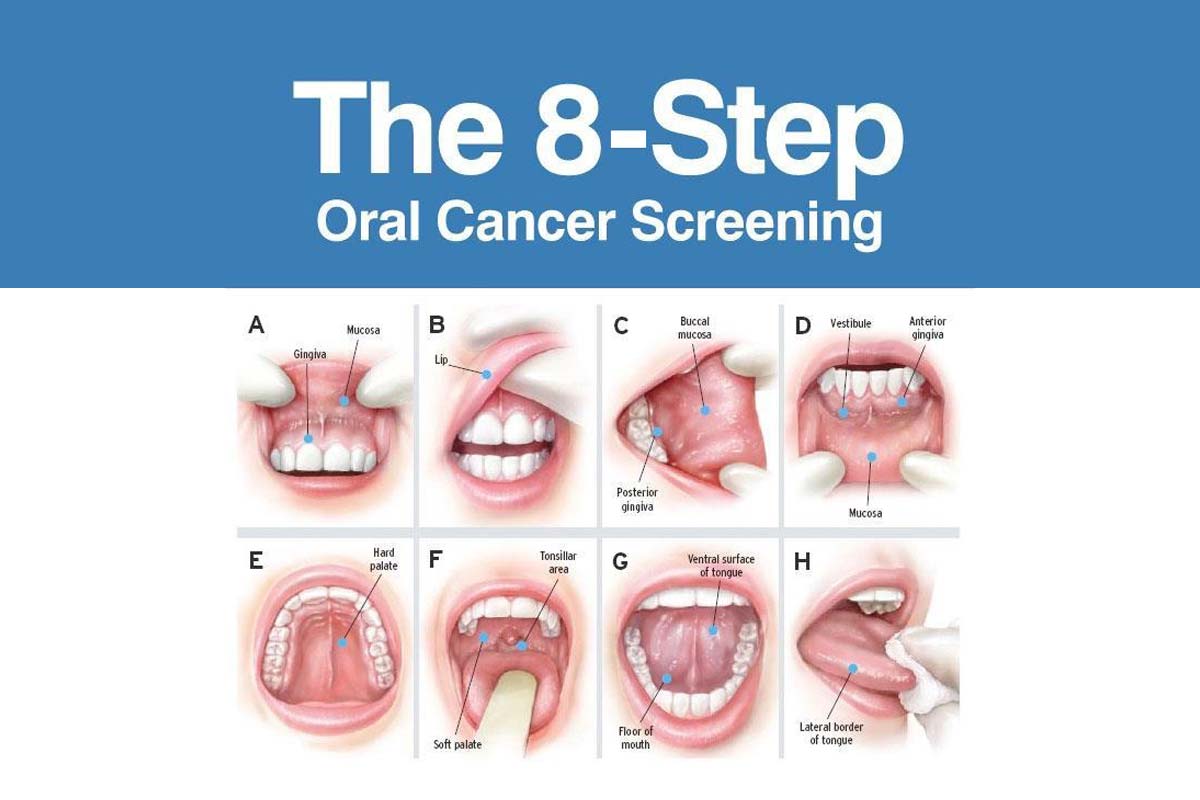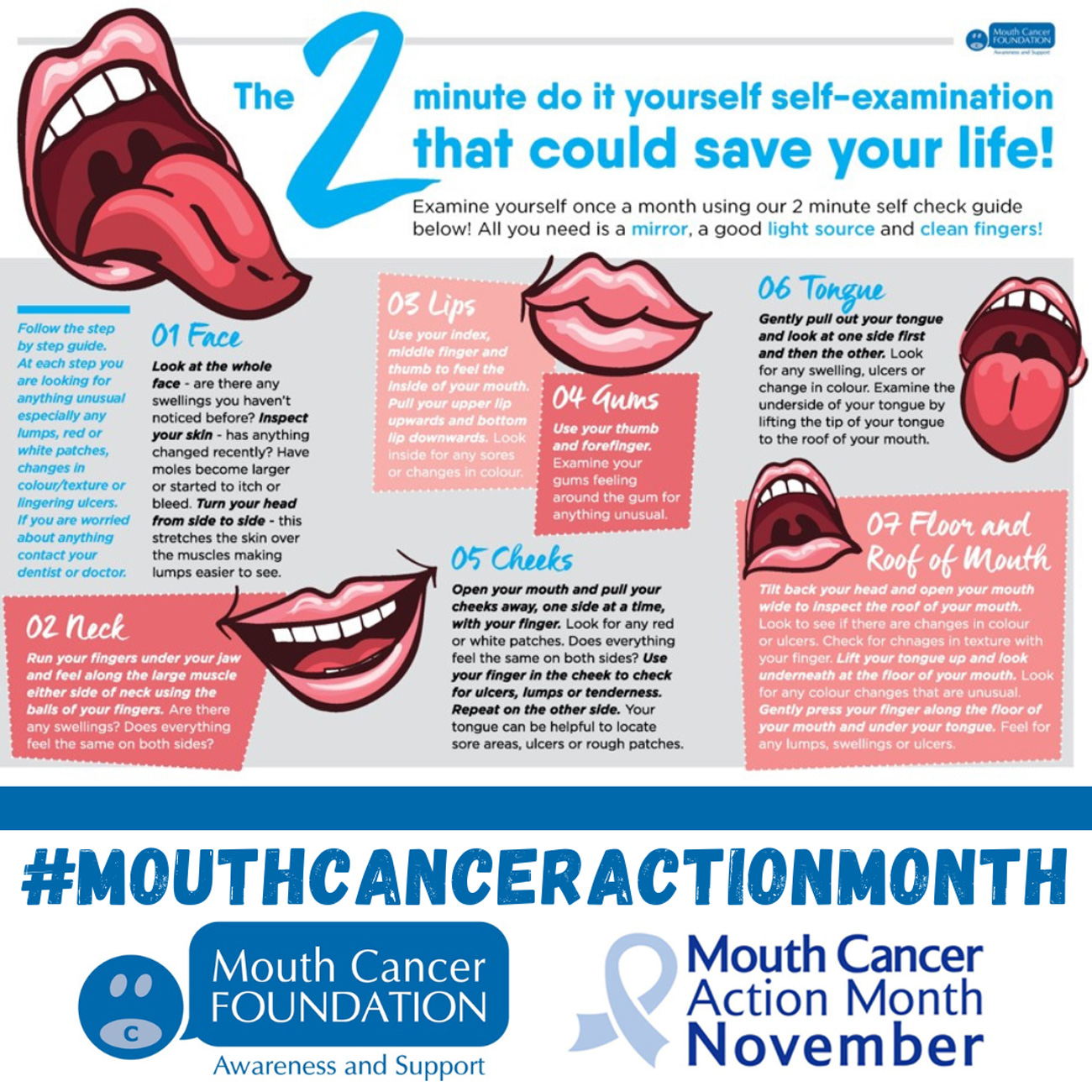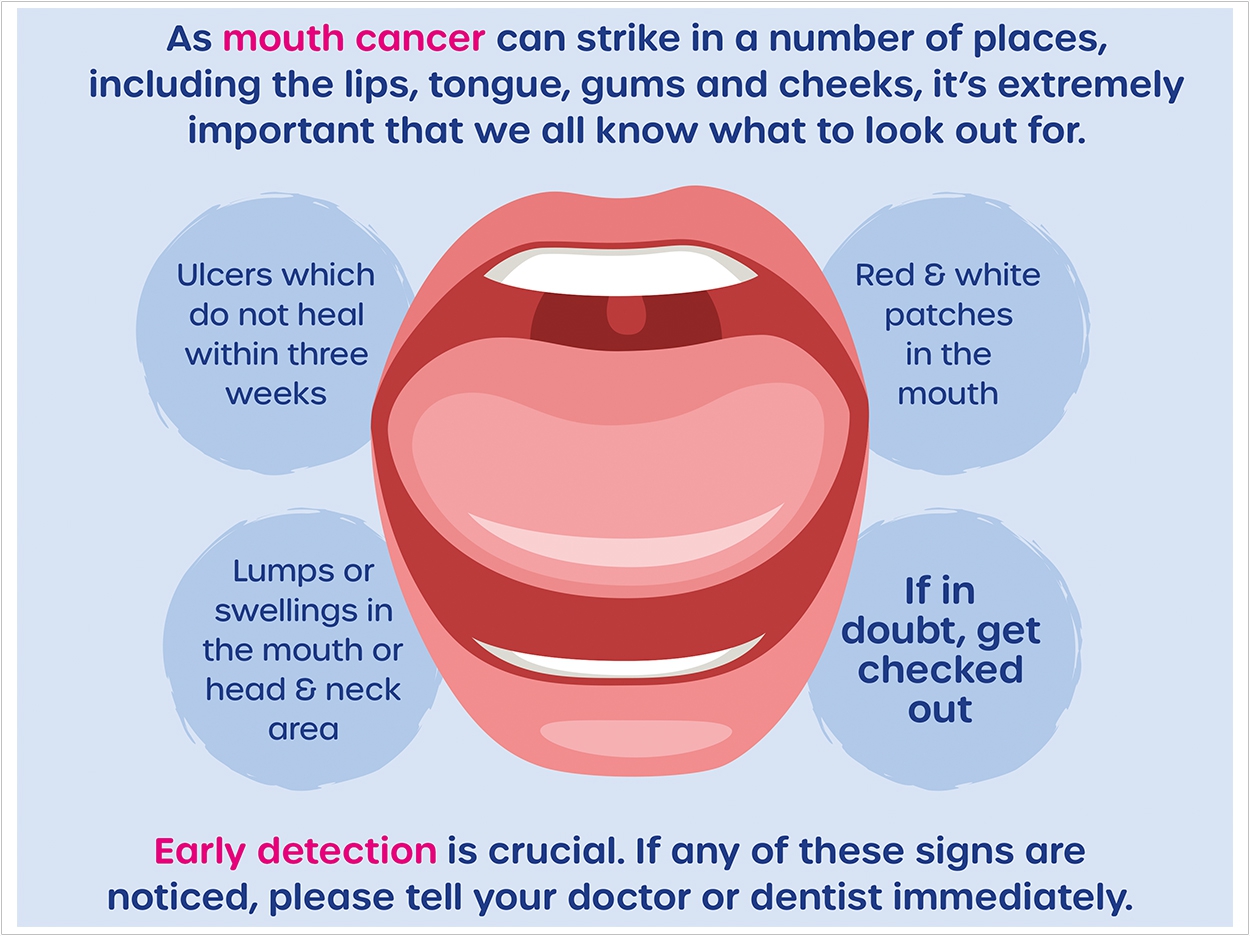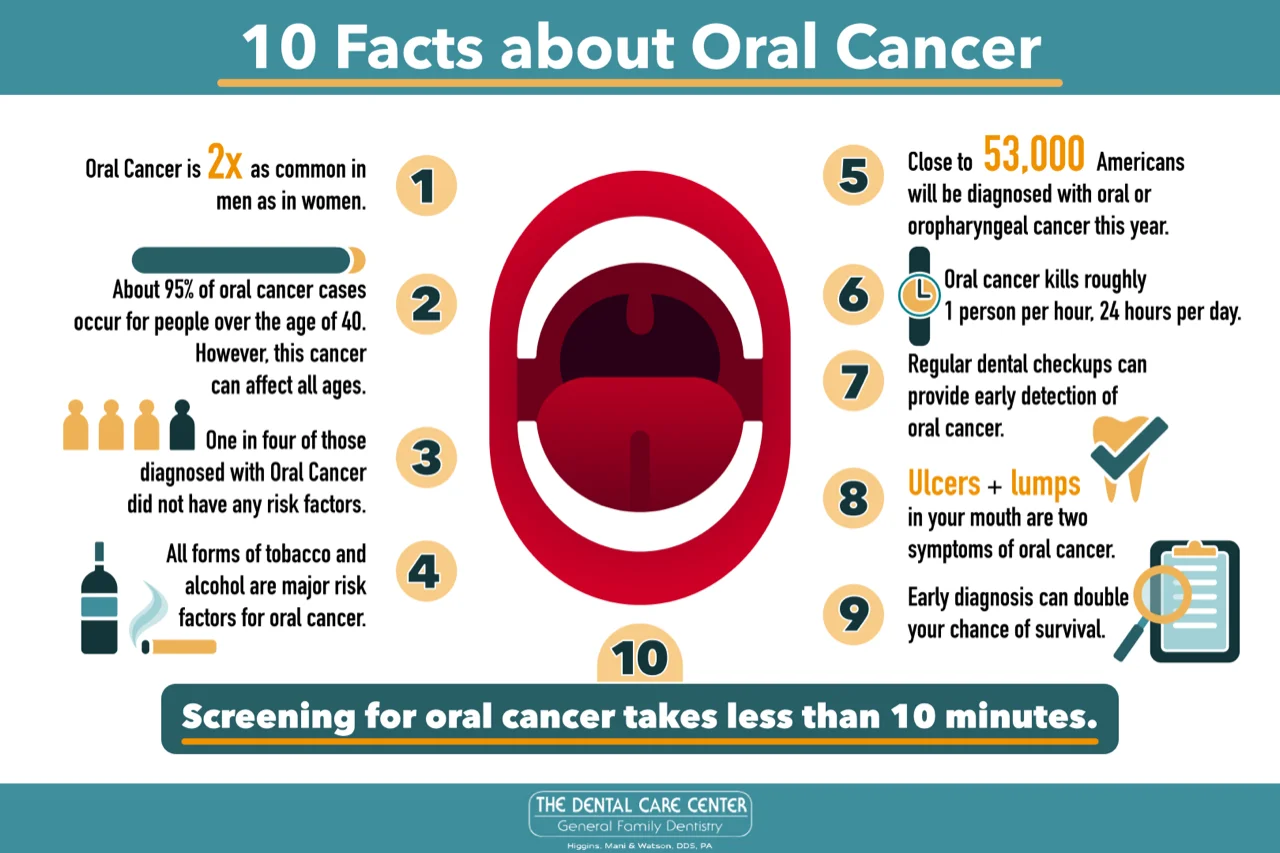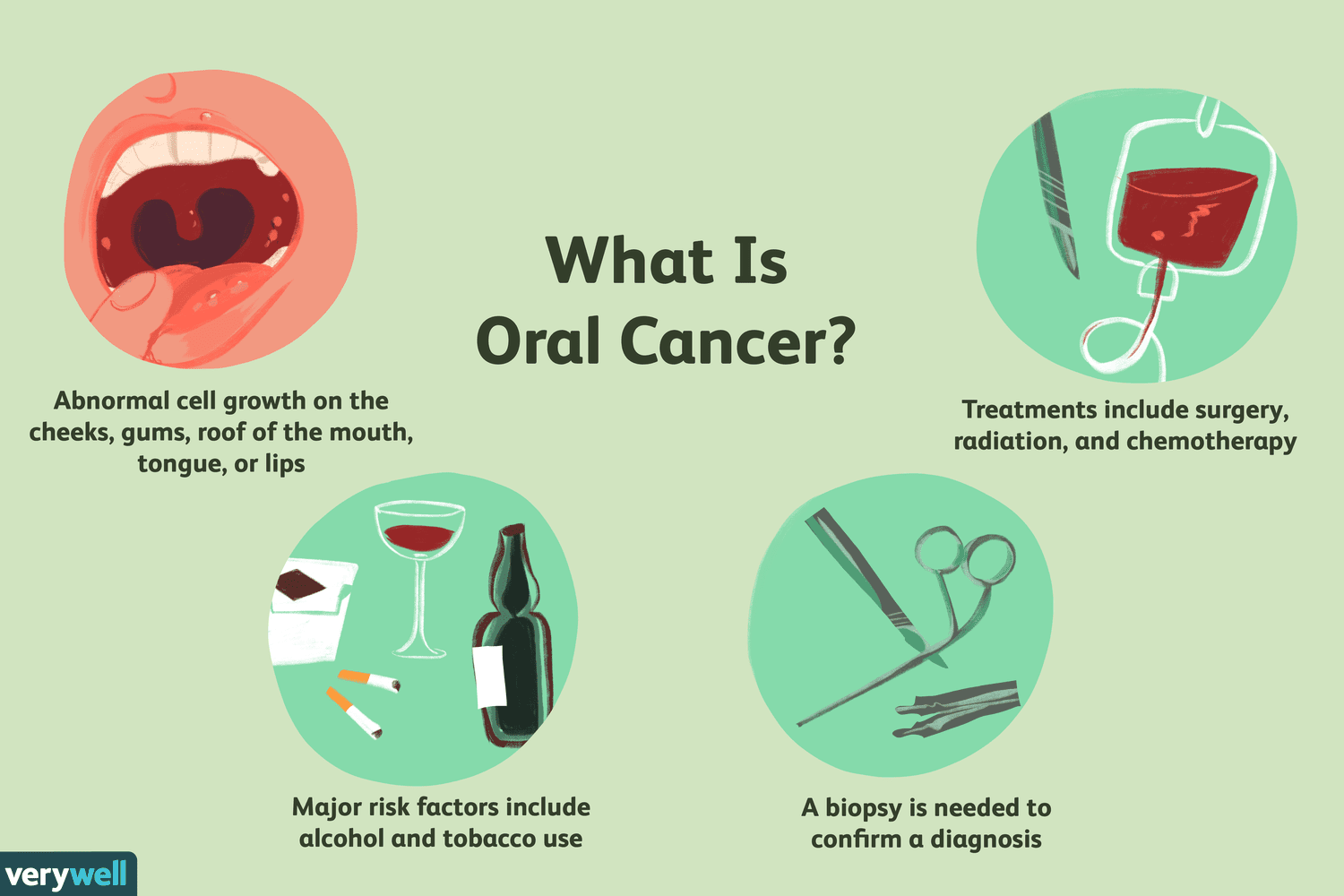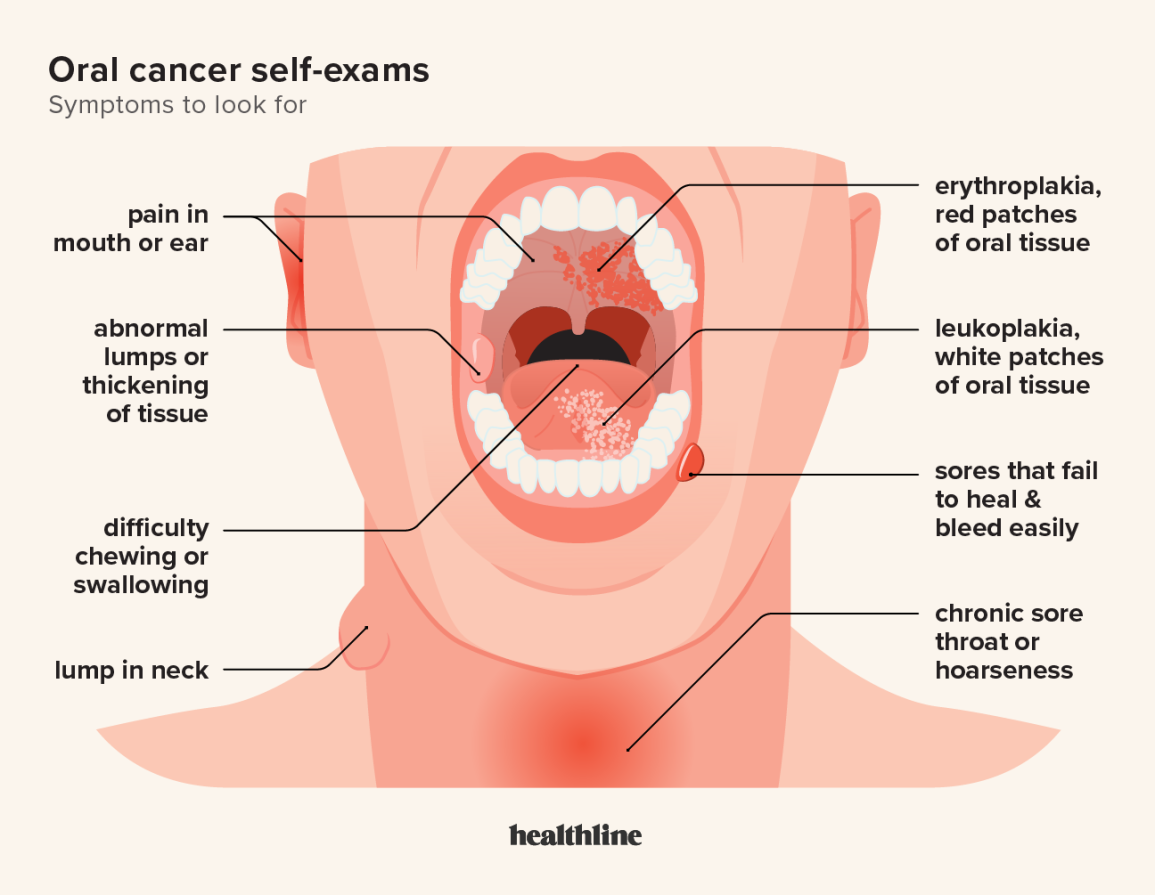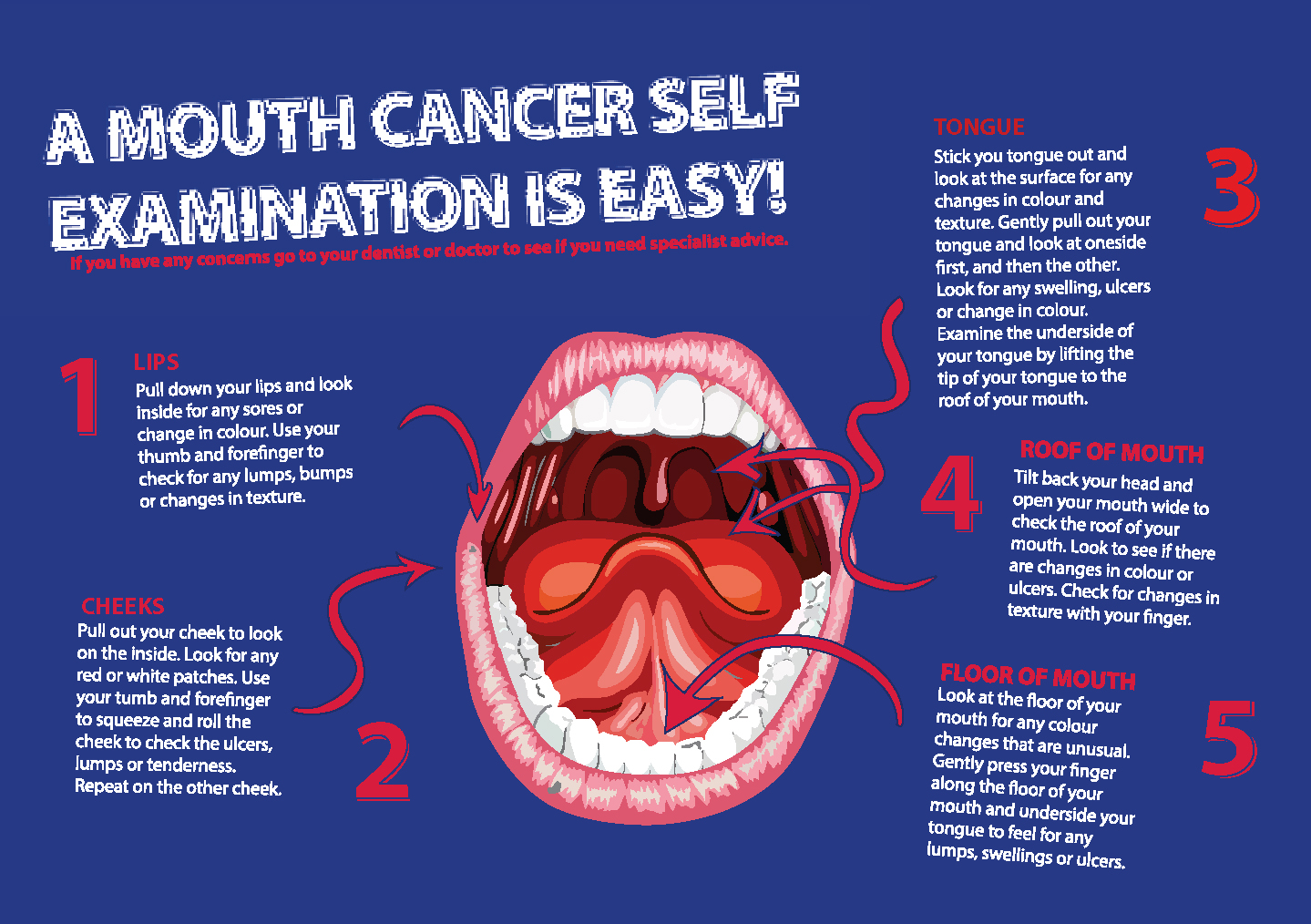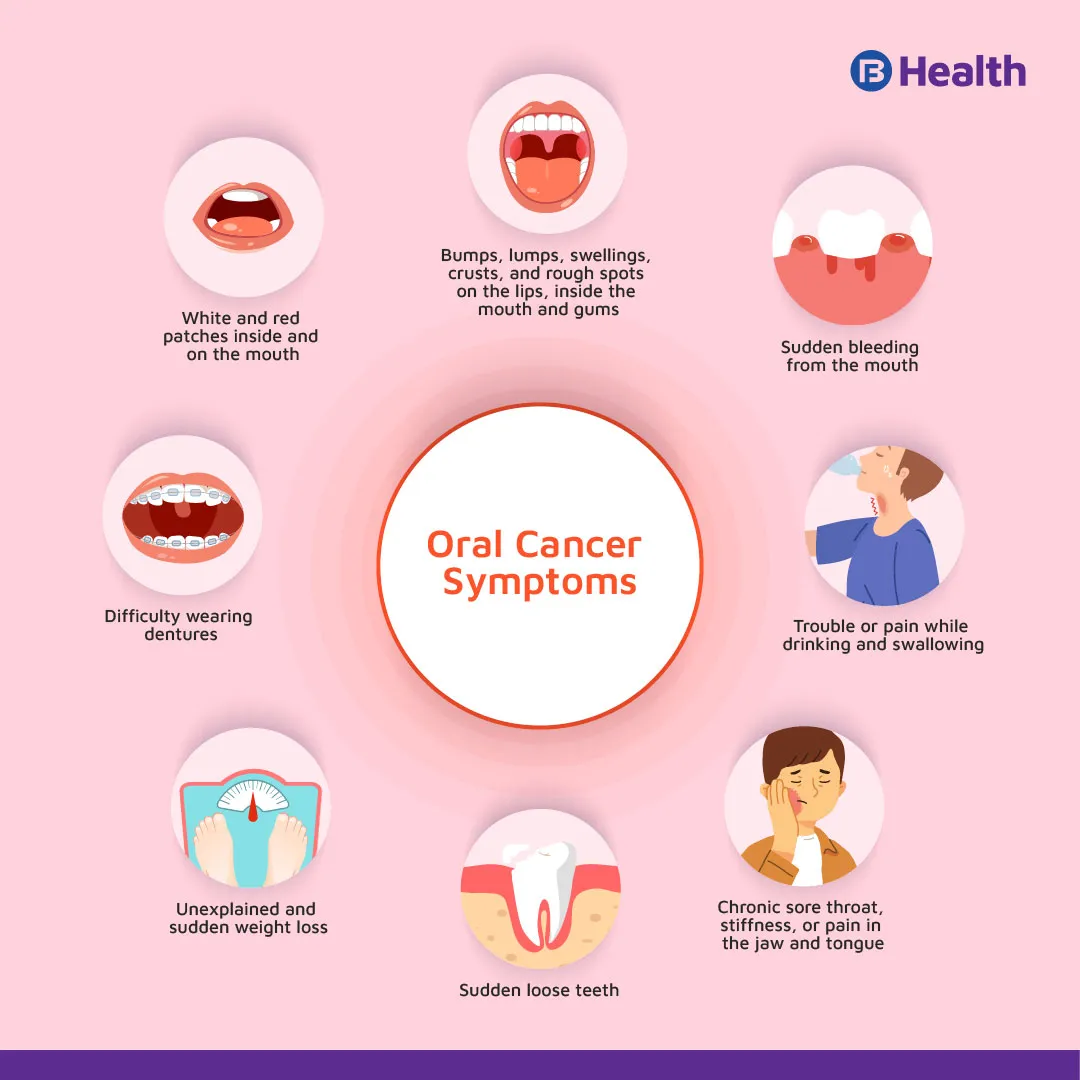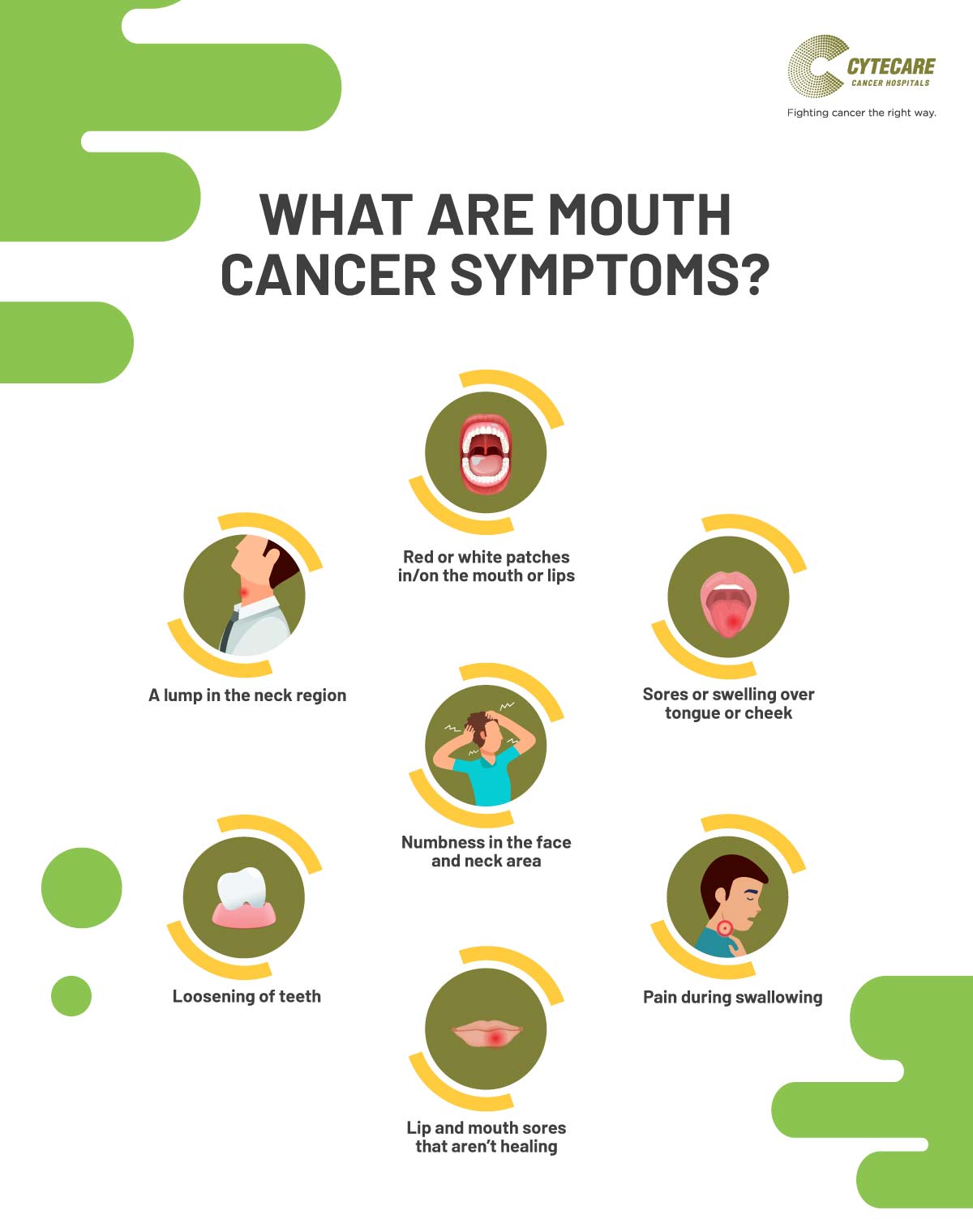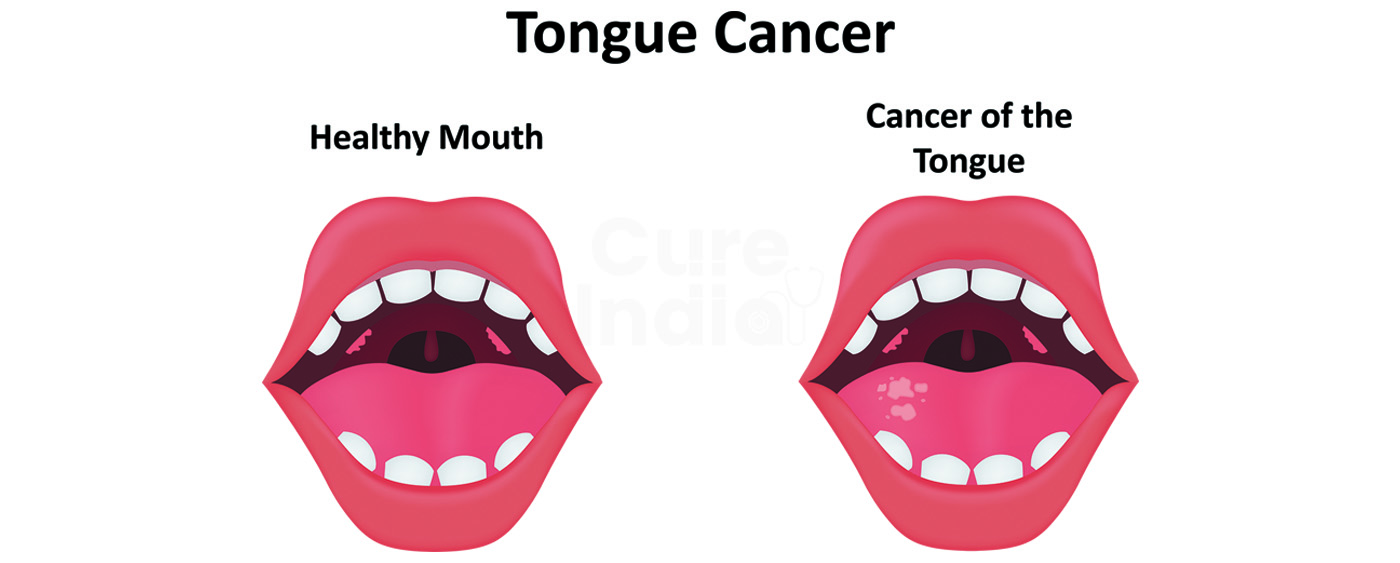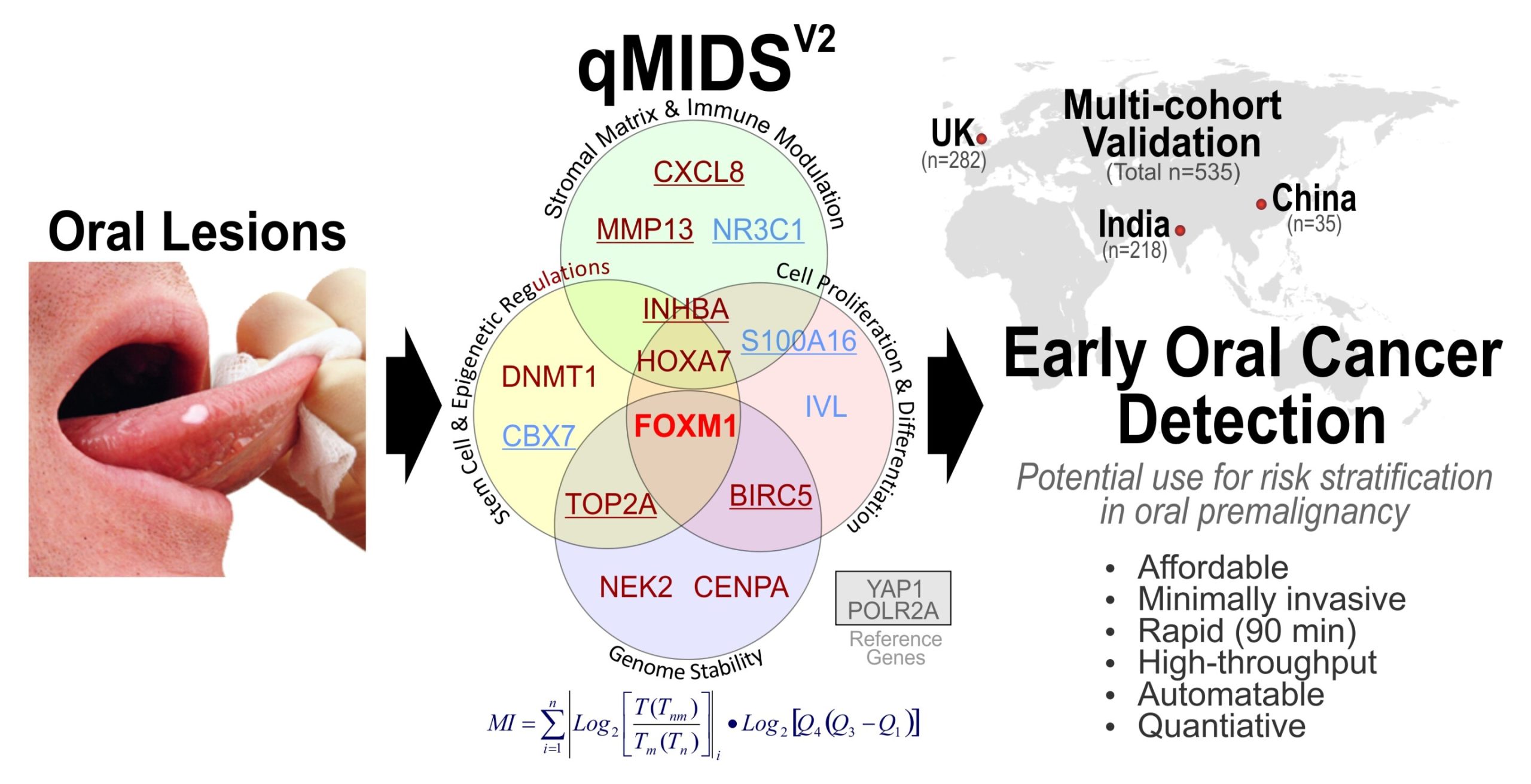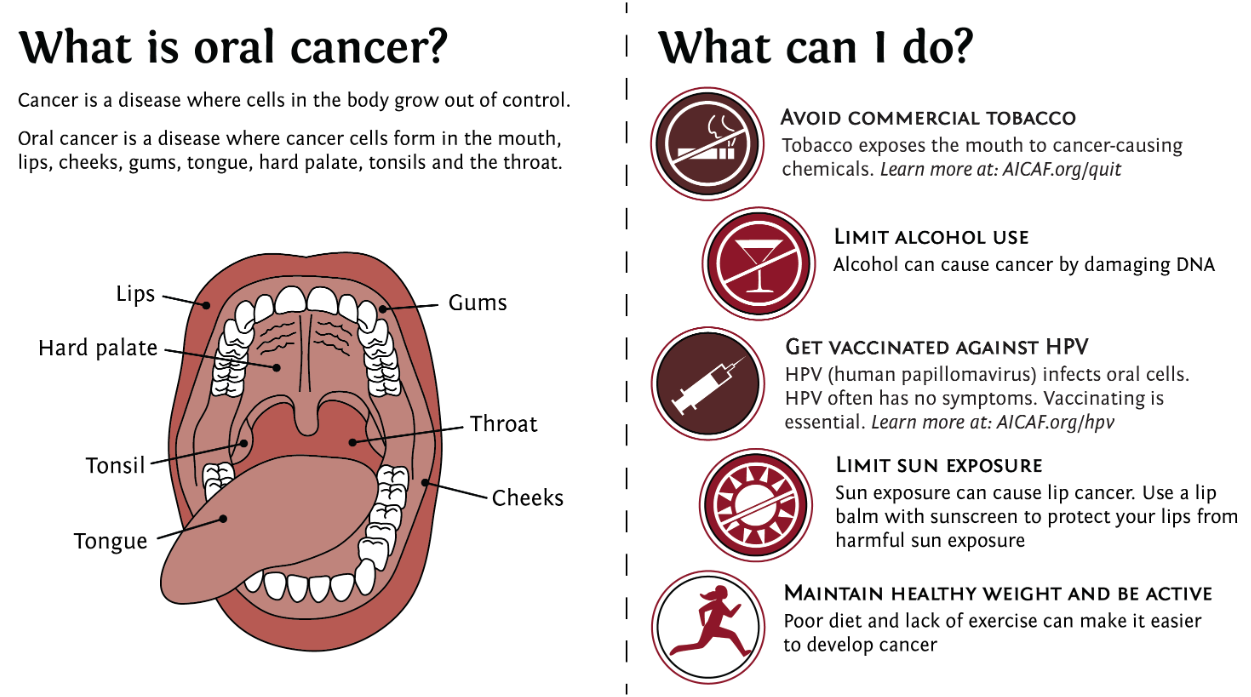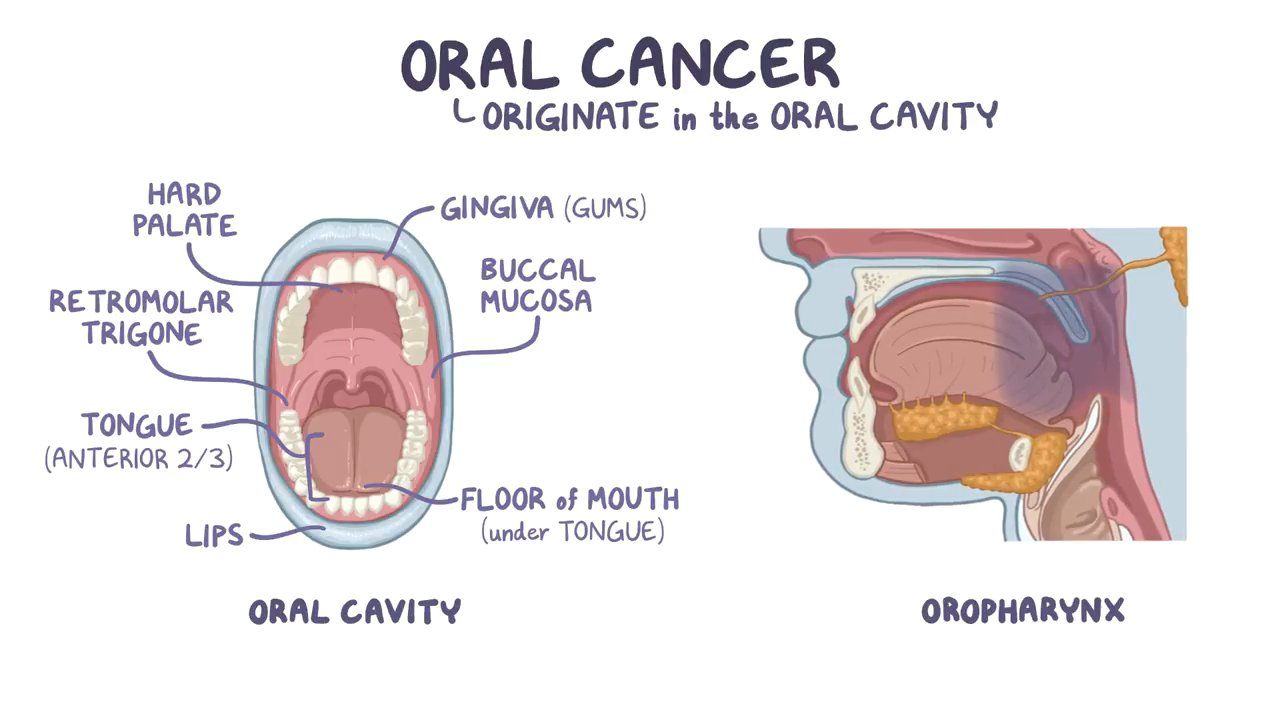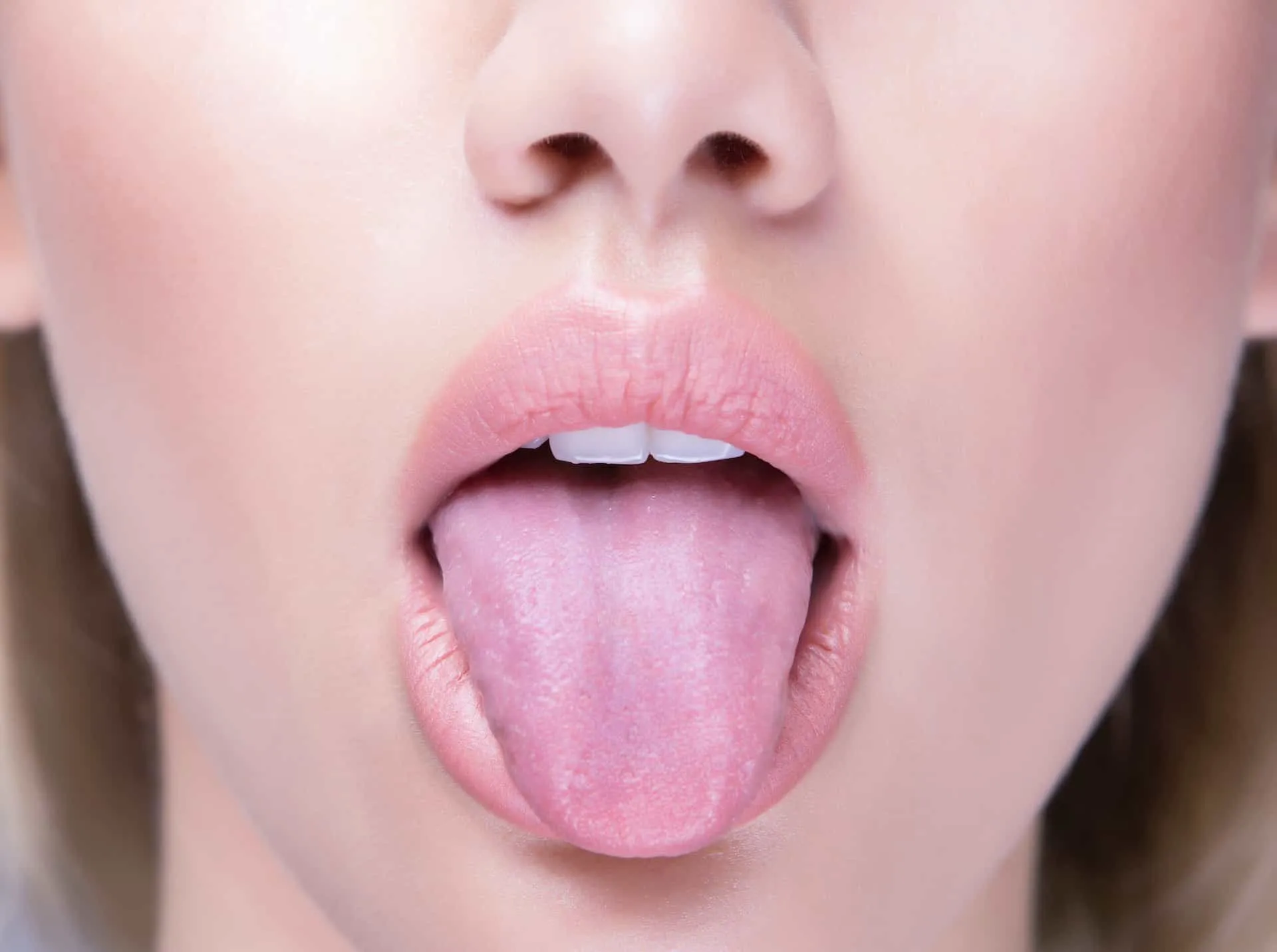
Key facts
- Mouth cancer is an aggressive type of cancer that can affect your lips, tongue or inner mouth.
- Risk factors include smoking, drinking alcohol, poor mouth hygiene and chewing betel nut.
- Symptoms may include a painless lump in your mouth or a mouth ulcer (sore) that won’t heal.
- Mouth cancer is often diagnosed at a late stage, but your chances of treatment success are greater the earlier it is detected.
What is mouth cancer?
Mouth cancer, also known as oral cancer, develops when abnormal cells grow and divide inside your mouth.
Mouth cancer usually begins in your lips, tongue or floor of your mouth, but it can also be found in the roof of your mouth, tonsils, gums, cheeks and salivary glands.
It can be quite an aggressive cancer. The cancer may not be found until it is quite advanced because you might not have any pain or symptoms. Your dentist is the person most likely to discover your mouth cancer, so it’s important to have regular dental check-ups. If you think you might have mouth cancer, you can also visit your GP.
What are the risk factors for mouth cancer?
You can develop mouth cancer at any age from young adulthood onwards. Risk factors include:
- smoking or drinking more than the recommended amount of alcohol
- sun exposure (especially to the lips)
- poor diet, poor mouth hygiene or gum disease
- poor mouth hygiene
- viruses such as human papillomavirus (HPV virus, which can be caught through oral sex) or Epstein-Barr virus (EBV, which causes glandular fever)
- having a close relative who has had mouth cancer
- chewing betel nut
What are the types of mouth cancer?
Most mouth cancers are squamous cell carcinomas (cancer that grows from the squamous cell layer in your skin).
Rare forms of mouth cancer include salivary gland cancer (usually an adenoma — a cancer that starts in a gland), a tumour that develops in other glands of your mouth, lymphoma (which starts in the lymph glands at the base of your tongue and tonsils), and melanoma.
What are the symptoms of mouth cancer?
The symptoms of mouth cancer may include:
- a painless lump, or a red or white patch in your mouth, lip, throat or neck
- a mouth ulcer (sore) that won’t heal
- problems chewing, swallowing or moving your jaw
- changes to your speech
- loose teeth
- weight loss
None of these symptoms are necessarily due to mouth cancer, and may be caused by other things. But if you are experiencing any of the above, you should tell your dentist or your GP.
How is mouth cancer diagnosed?
If your dentist thinks you might have mouth cancer, they will refer you to your GP for tests. Tests may include:
- a biopsy — when a small sample of tissue is removed to be checked in a laboratory
- imaging scans — such as an x-ray, PET, CT or MRI scan
- endoscopy
How is mouth cancer treated?
Treatment will depend on the type of mouth cancer you have and how far it has spread. If your mouth cancer is at an early stage, you may have surgery to remove the tumour. The type of surgery you need will also depend on where your cancer is, and how large it is. The surgeon may also need to remove lymph nodes and some surrounding tissue. If you have a small cancer, you may be treated just with radiotherapy. In some cases, you may need both radiotherapy and chemotherapy.
Not all mouth cancers can be treated. If your cancer is advanced, palliative care may be offered to help relieve symptoms.
What should I do after completing treatment for mouth cancer?
After treatment, you’ll still need regular check-ups and tests by specialists. Mouth cancer can come back so it is very important that you see your doctors regularly.
After you have been treated for cancer, it is normal to feel afraid that your cancer will return. If you are struggling, it is important to seek support from your doctor, a therapist or other people who have been through cancer.
Can mouth cancer be prevented?
It is important that you stopping smoking and reducing alcohol intake to help prevent mouth cancer. Also, make sure to protect your lips from the sun. Keep your mouth clean and see your dentist regularly, even if you have dentures.
You should see your dentist for regular check-ups (at least yearly) even if you have no symptoms, and visit your dentist or GP if you’re concerned you might have mouth cancer.
